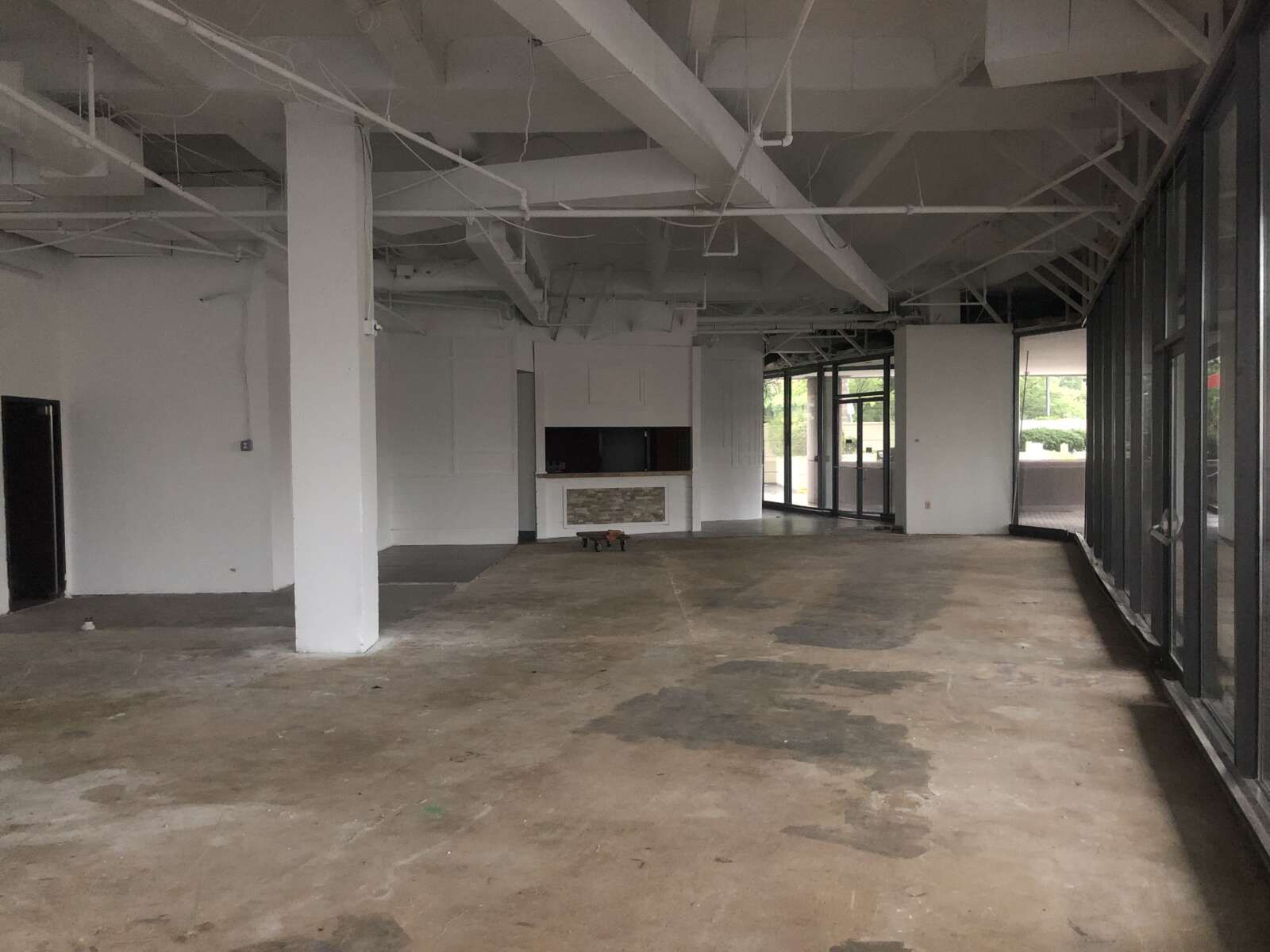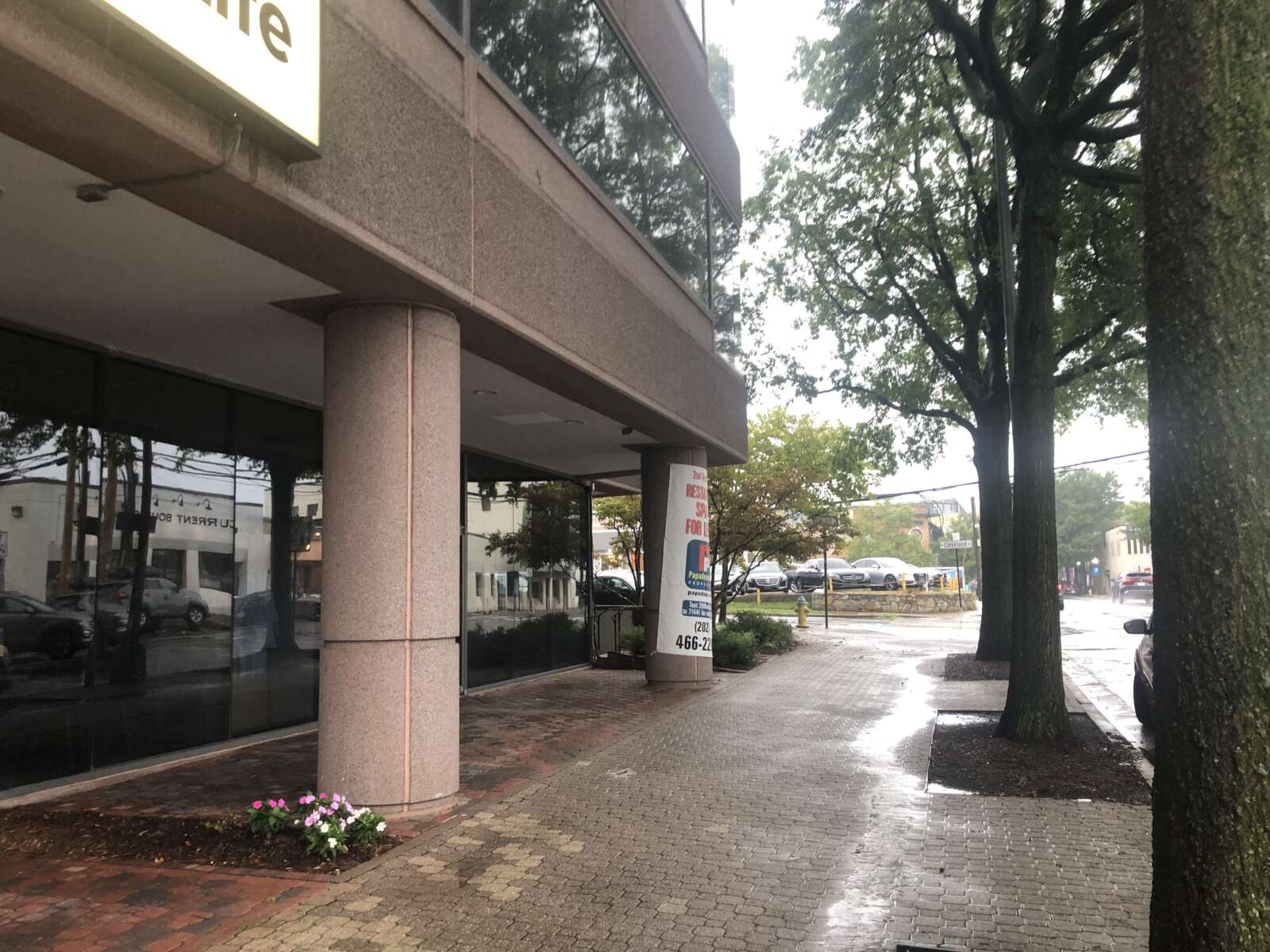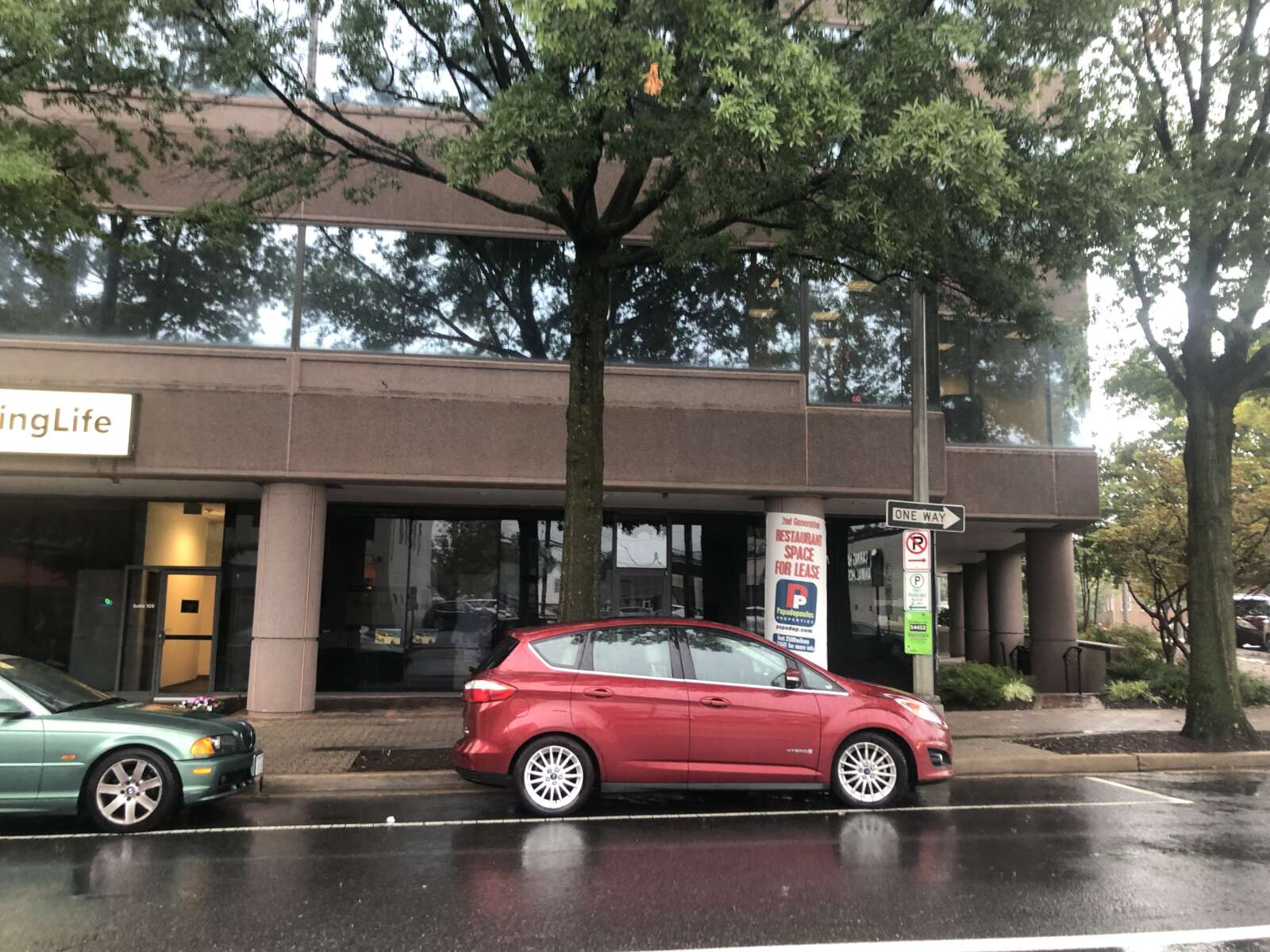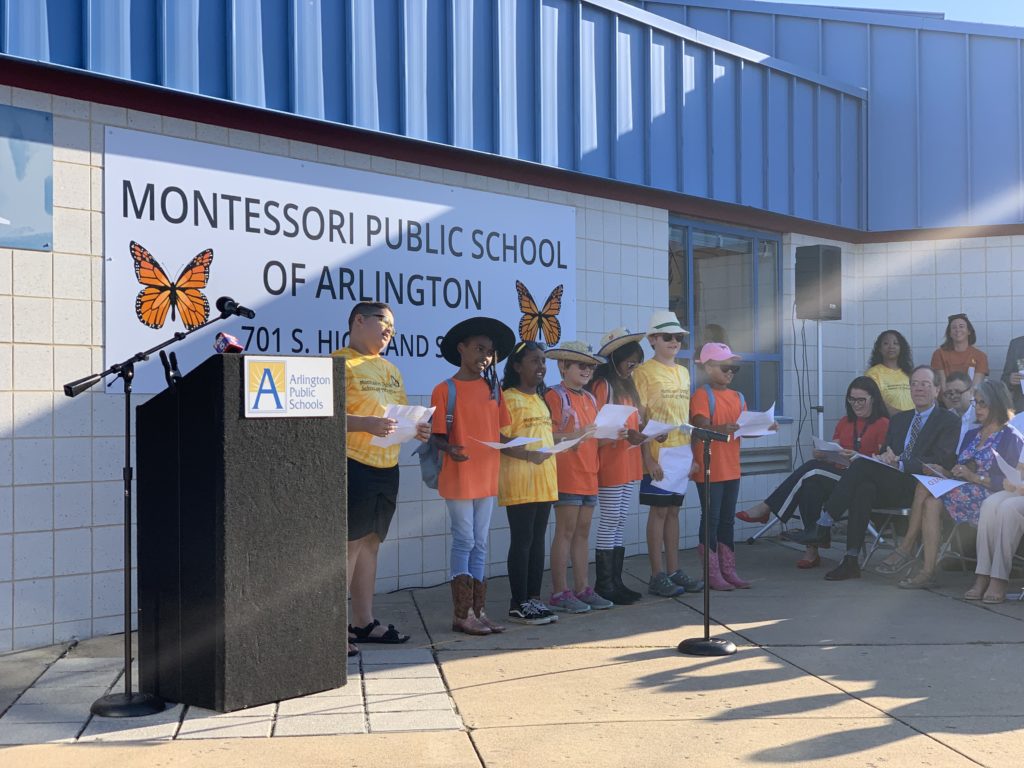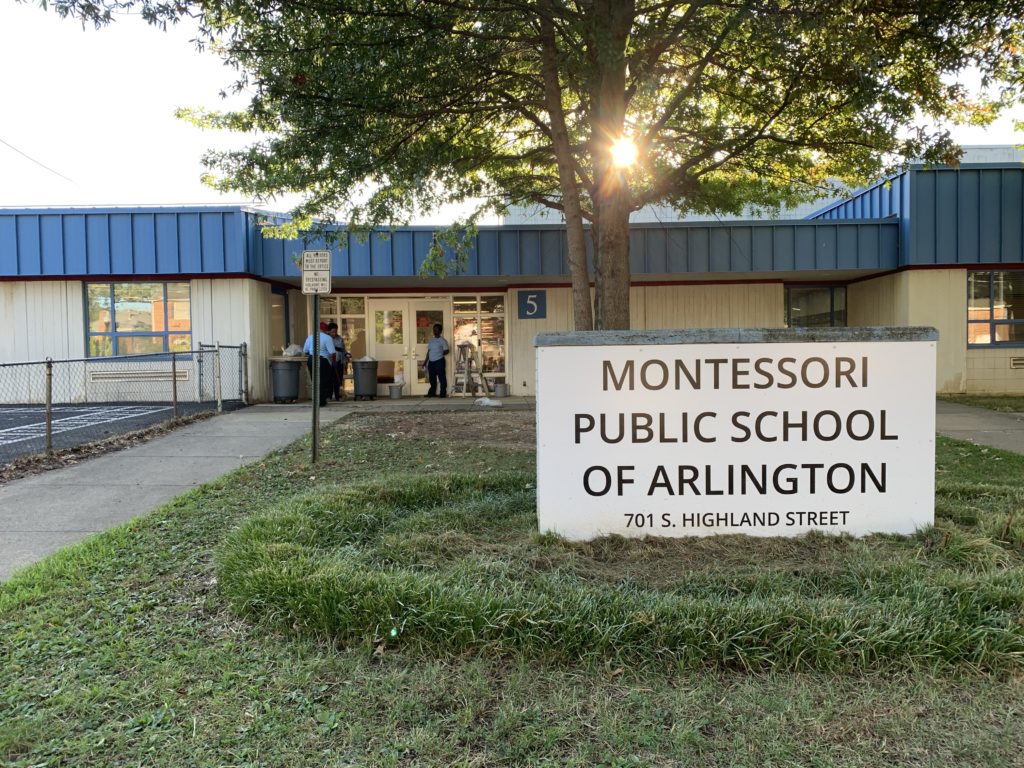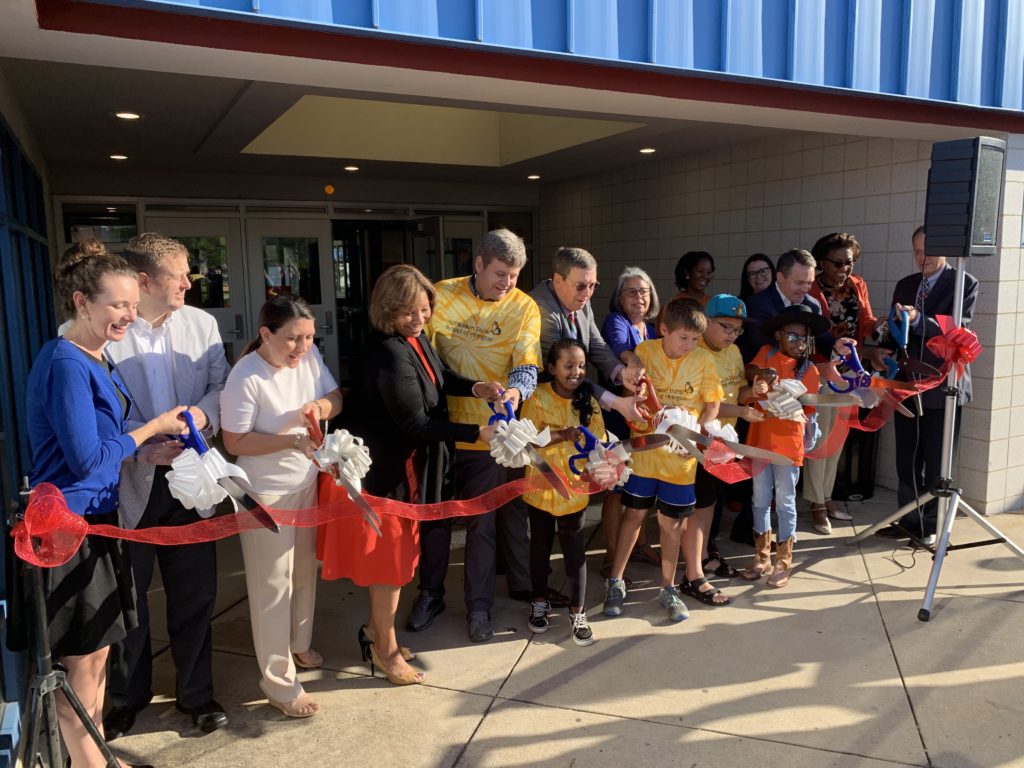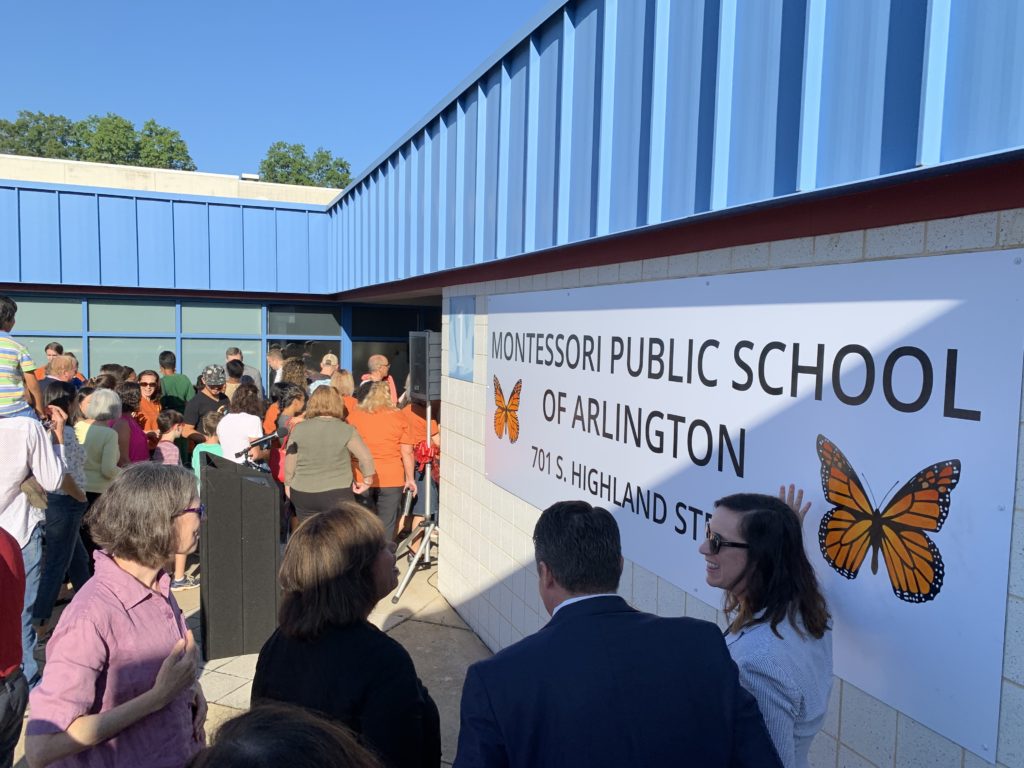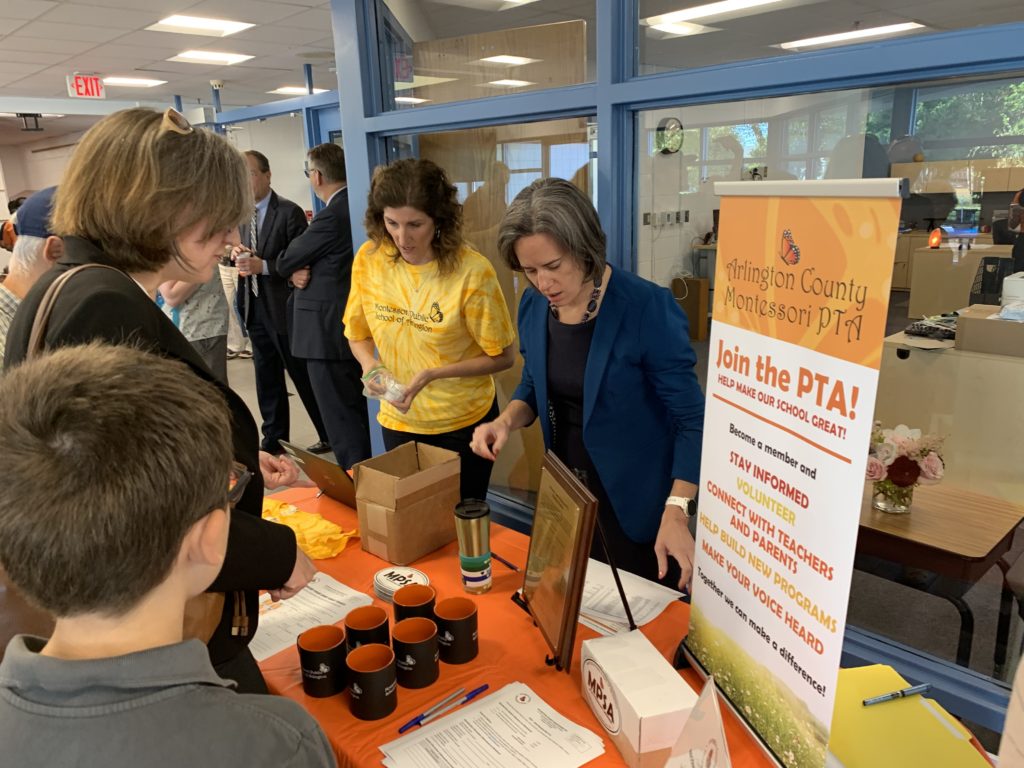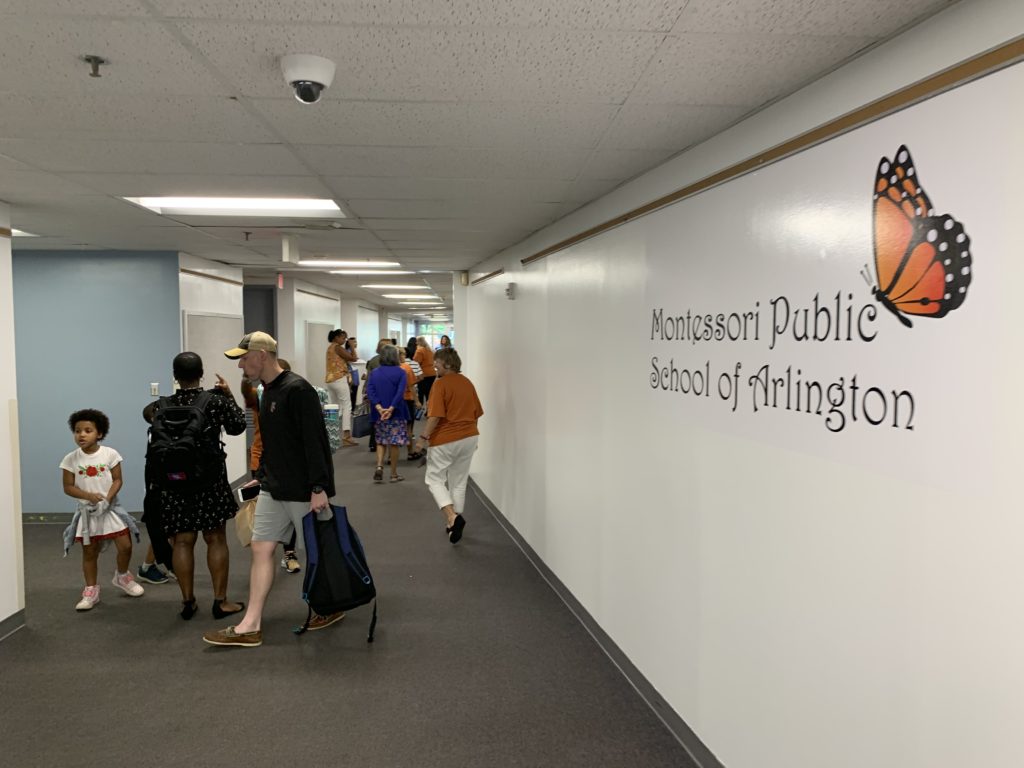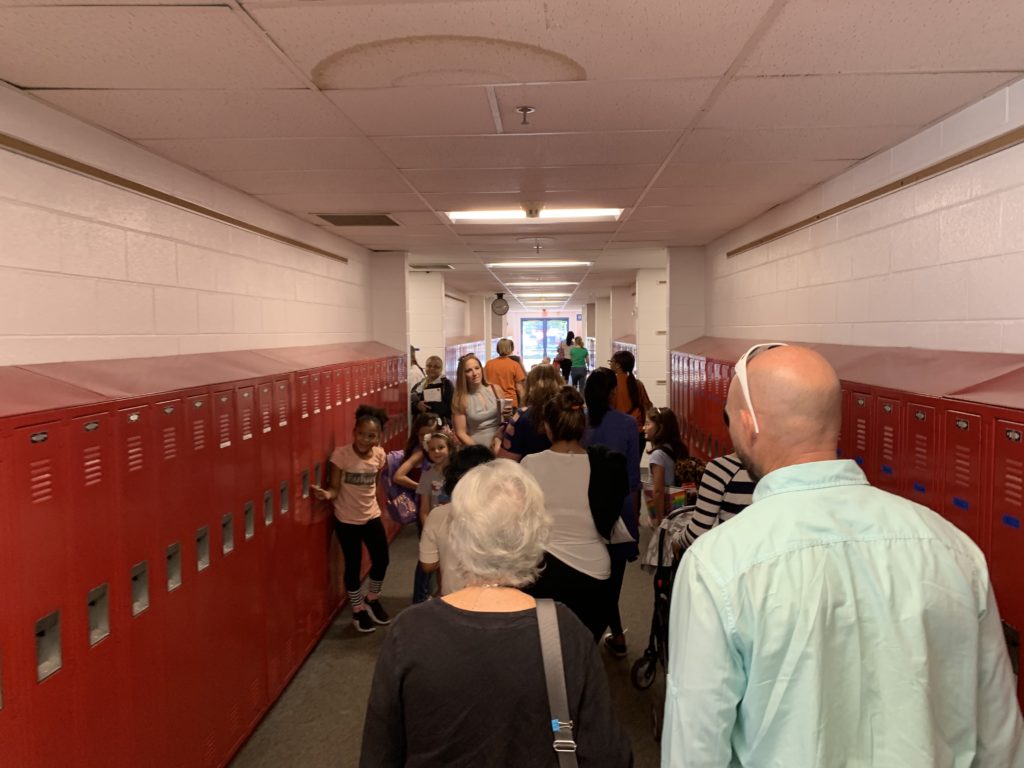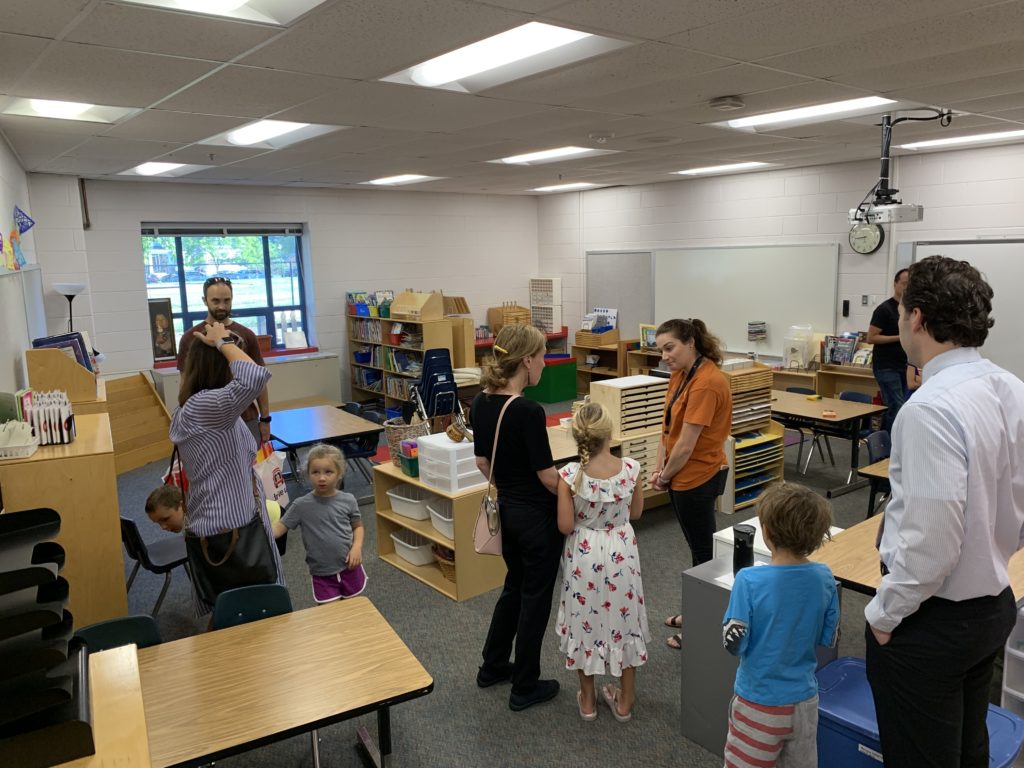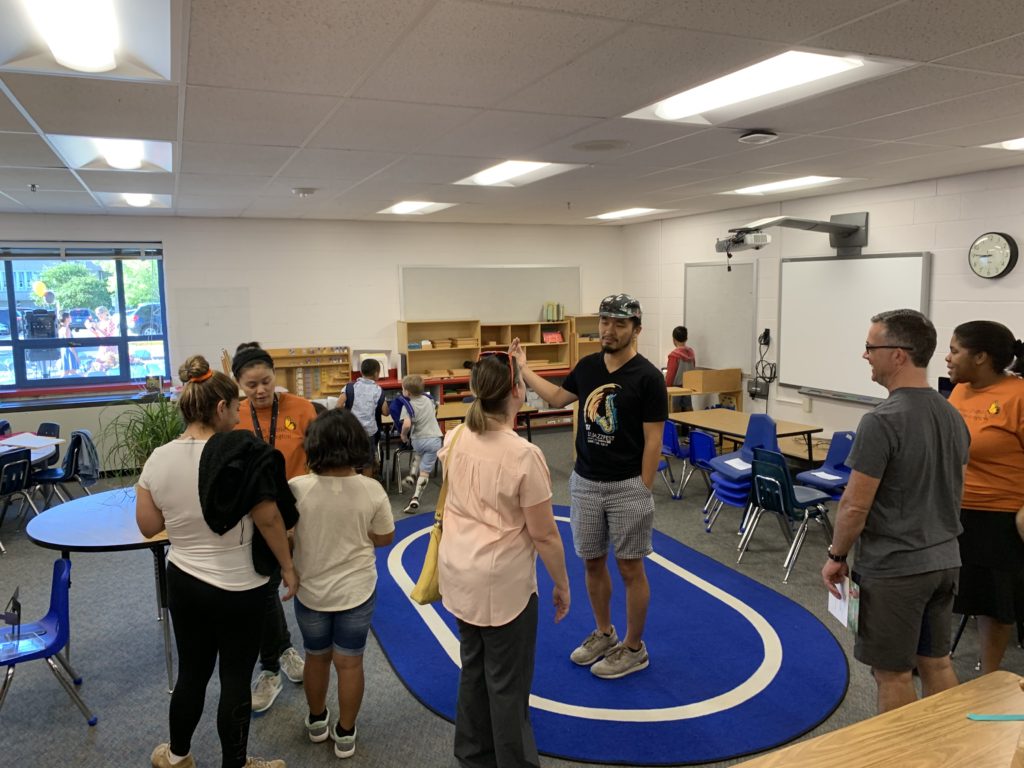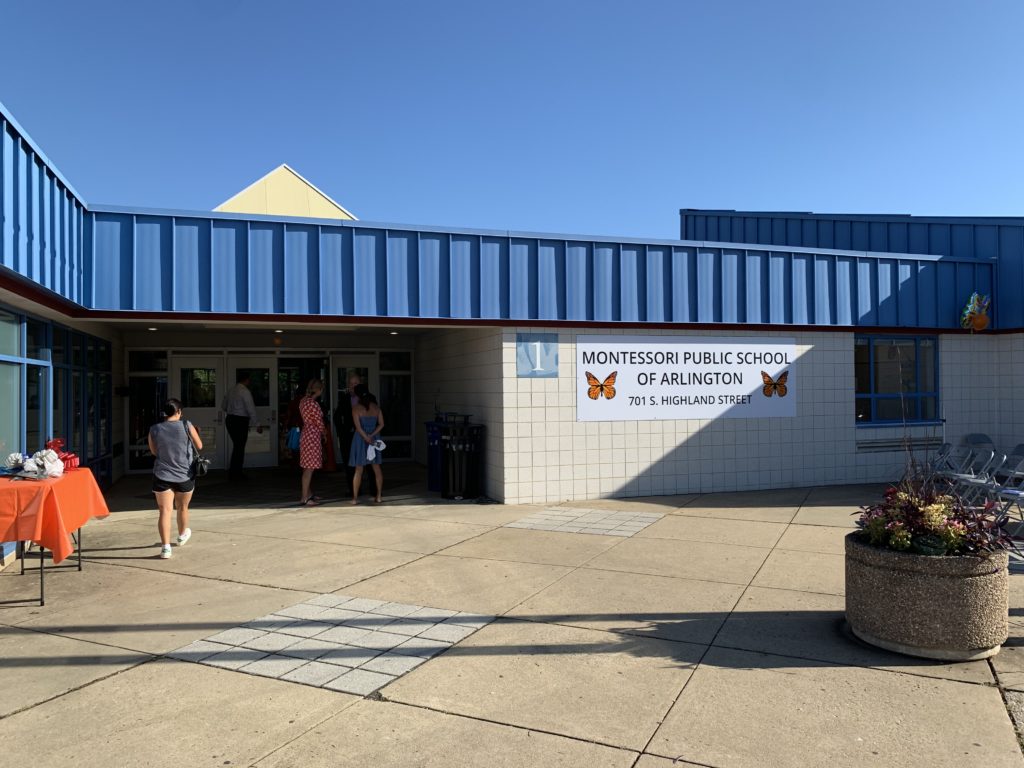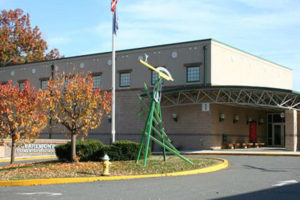(Updated 12:30 p.m.) A shuttered Vietnamese restaurant between Courthouse and Clarendon may be converted into a music-based childcare center.
Rock and Roll Daycare is requesting Arlington County approve child care as a use for the site, which comprises about 4,391 square feet of unused, ground-floor restaurant space at the corner of Wilson Blvd and N. Cleveland Street. Rock and Roll Daycare offers music-based Montessori instruction to infants, toddlers and preschool children, according to the company’s legal representation, land use lawyer Nick Cumings.
The company is eyeing the former location of Minh Vietnamese Restaurant, at the base of a five-story office building at 2500 Wilson Blvd. The building is lined with other ground-floor retail and has 189 parking spaces, wrote Cumings, from the firm Walsh Colucci, in a letter to the county dated February.
“The Applicant is a family-run daycare provider in Massachusetts that is seeking to establish its presence in the D.C. metropolitan area,” Cumings said. “Rock and Roll Daycare… provides a unique music and arts program, international cultural education, and self-directed learning programs tailored to each child.”
The pending franchise location in Arlington follows the opening of two others in the D.C. area, one in Alexandria and the other in Reston.
The daycare will provide five classrooms: one for preschoolers and two each for toddlers and infants, Cumings said. There will be eight to 10 staff members and up to 58 enrolled children. Classes will be held year-round, Monday through Friday, from 7 a.m. to 7 p.m.
An outdoor play area about 995 square foot in size will be fenced in and contain play equipment, he said.
Approval “will bring a unique and much-desired child care option to Arlington County while continuing to activate the corner of Wilson Boulevard and North Cleveland Street,” Cumings said.
The request is one of five site plan applications that will be heard at a County Board meeting this fall. After the August recess ends, the County Board will begin meeting again on Saturday, Sept. 18, but a spokeswoman for the Department of Community Planning Housing and Development said she expects it will go before the board in October.


